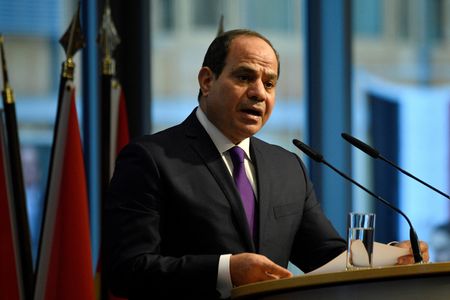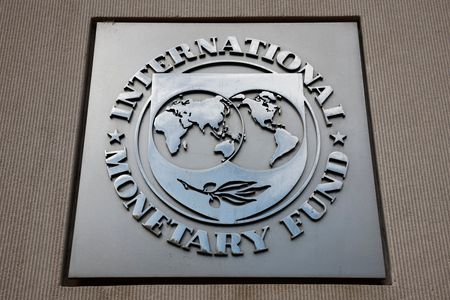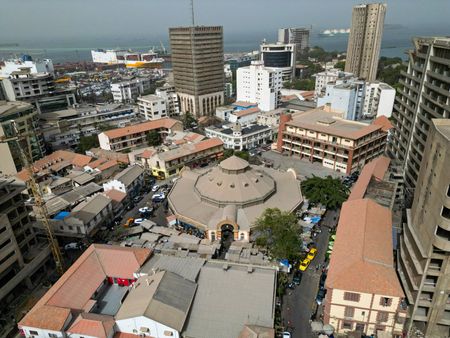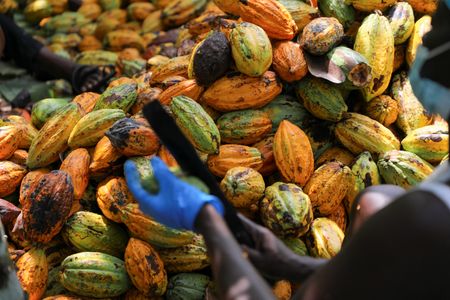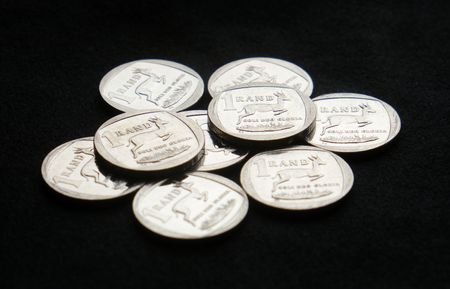By Mohamed Ezz
CAIRO (Reuters) -Egypt plans to launch a revamped national commodity exchange to oversee imports and exports of essential agricultural goods, the presidency said on Tuesday, as it strives to secure consistent supplies and keep prices steady.
The exchange, in which the military-linked Future of Egypt for Sustainable Development has a majority stake, will act as a “safety valve” for local markets, and balance the interests of producers and consumers, the presidency said in a statement.
The statement followed a meeting between President Abdel Fattah al-Sisi, Prime Minister Mostafa Madbouly, the agriculture and supply ministers and Future of Egypt.
The procedures for registering private exporters and importers have begun, and a draft law regulating the exchange’s operations is in development, the statement said. Two traders told Reuters they had yet to be contacted for registration.
While the statement did not say which goods would be traded through the exchange, a preliminary announcement in March said it would oversee crops, processed foods, animal feed, fertilisers, pesticides, and veterinary medicines.
The move comes amid a sharp decline in Egypt’s wheat imports following a major shake-up of its procurement system.
According to trade data reviewed by Reuters, wheat imports in the first half of 2025 fell by more than 27% year-on-year to around 5.2 million metric tons, with the government’s share of those imports plunging more than 57% to 1.5 million tons.
Egypt is one of the world’s largest wheat importers, relying on foreign supplies for both its subsidised bread programme and private milling.
The presidency said on Tuesday that the government had signed contracts to import 3.4 million tons of wheat, 192,000 tons of crude vegetable oils, 4,000 tons of frozen poultry, and 6,000 tons of frozen meat, though it did not specify the delivery or purchase timeline.
Future of Egypt took over commodities procurement from the General Authority for Supply Commodities in late 2024 as the military tightened its grip on the economy, but has had a rocky start.
Traders told Reuters earlier this year that the agency initially lacked key requirements for doing business and relied heavily on intermediaries, despite occasional direct deals with international suppliers.
Future of Egypt has told Reuters that it is working on building deferred purchasing positions to maintain a constant flow of key commodities.
The Supply Ministry did not immediately respond to a request for comment.
Egypt has strategic reserves of wheat and other commodities sufficient for more than six months, Prime Minister Madbouly said in June.
(Reporting by Mohamed EzzEditing by Mark Potter)

